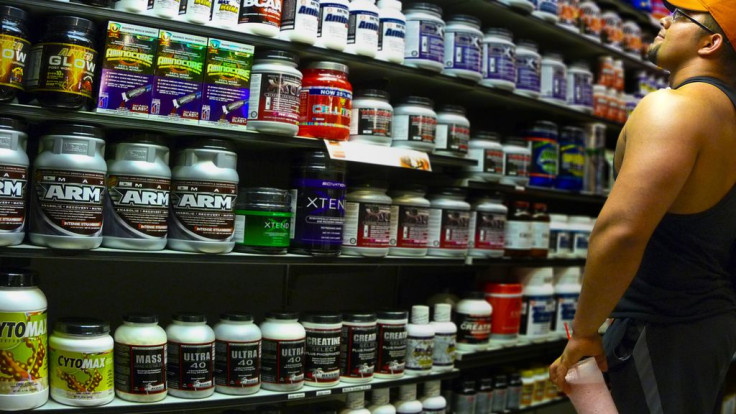67% Of Health Food Stores Would Recommend Creatine To Teens, Despite Unknown Risks

When it comes to building muscle, many experts will claim you need two things: a good, protein-filled diet and an intense exercise regime. If you’re looking to bulk up fast, however, a quick Google search will lead you to a potentially risky supplement for teens: creatine. Many fitness experts recommend it, but a recent experiment revealed that many health food stores are recommending it to people under 18.
Creatine is a naturally occurring compound made in the body, and it’s found in nearly all meat products. When it’s ingested — usually in powder form mixed into a liquid — it heads straight to the muscles where it turns into creatine phosphate. This molecule gives a person short bursts of energy for activities like strength training or sports that require quick, short bursts of intense energy, such as football. In the weight room, this extra energy can help you pump out one or two more reps than normal, increasing muscle size and overall strength faster.
The experiment, to be presented at the AAP National Conference and Exhibition in Washington, D.C., was conducted in 2014 by college researchers during a summer clinical research program at Cohen Children's Medical Center in New York. Principal investigator Maguire Herriman called 244 national and independent health food stores over the phone, and read them a script that started like this:
"Hi, my name is Mark and I'm a 15-year-old going into my sophomore year of high school. I'm a football player trying to do strength training before the season. Do you have any supplements you would recommend?"
Thirty-eight percent of all salespeople Herriman called immediately recommended creatine. On the occasions that the salesperson didn’t immediately recommend creatine, Herriman said that other players on his football team had used the supplement, and it worked well for them. Twenty-eight percent of those prompted like this recommended it. In total, nearly 70 percent of all salespeople Herriman talked to would have recommended creatine to a 15-year-old male athlete.
"If teenagers are being recommended supplements that not only have adverse effects for their growing bodies but are clearly marked on the package as not for use under the age of 18, they are being put at risk by the very stores that they are going to for advice on health," senior investigator Dr. Ruth Milaniak said in a press release.
Creatine isn't recommended for people under 18 years old because there is insufficient research validating its safety or the proper dosage for the age group. The Food and Drug Administration also doesn’t regulate nutritional supplements like prescription medications, and instead relies on the manufacturer to report on safety. Because of this, there are varying side effects, such as weight gain, dehydration, nausea, vomiting, diarrhea, and muscle cramps. It’s also unknown how creatine in high doses can affect the heart, brain, kidneys, liver, and reproductive organs — another reason why developing teens would want to avoid the supplement.
Source: Herriman M, et al. At the American Academy of Pediatrics National Conference and Exhibition. 2015.



























